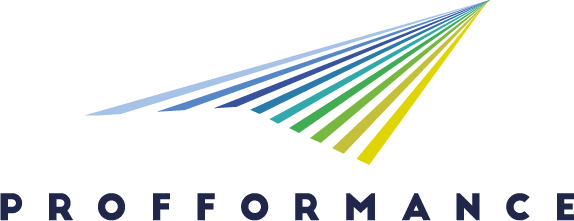CERL for CSR
Empowering Future Leaders: Integrating Corporate Social Responsibility and Sustainability in Higher Education Through Community-Engaged Learning
- 04 – Business, administration and law
4. Impact and mission with and for society
- Service-learning and active citizenship learning for impact in society
- Promoting social responsibility through teaching professional and ethical values
- Teaching through real social projects addressing society’s global challenges
- Joint practices with social partners and stakeholders of civil society for empower students to active citizenship
The CERL for CSRis good practice transforms higher education by integrating Corporate Social Responsibility (CSR) and sustainability through a community-engaged learning approach. The initiative is built on collaboration between a lecturer and the Corvinus Science Shop, a center for community engagement, evolving from BA-level courses into an MA-level program supported by a corporate partner. Students design implementable CSR projects for community partners, fostering a mutual learning process that benefits both the academic and societal spheres. Innovative Aspects: 1. Real-World Application: Students address genuine community challenges by developing CSR proposals that community partners can implement with pro bono corporate support. 2. Mutual Benefit: The course fosters co-creation of knowledge and solutions, strengthening ties between academia, society, and business. 3. Skills Development: Students acquire critical thinking, problem-solving, and collaboration skills while engaging with sustainability challenges. 4. Impactful Reflection: Assignments emphasize reflection, fostering awareness of individual responsibility and societal impact. Main Outcomes and Outputs: • Students produced over 14 CSR projects with 11 community partners at the BA level and 3 partners at the MA level, directly addressing local and global sustainability challenges. • Feedback loops involving community partners and students have enhanced the course structure, ensuring its long-term relevance. • The practice fosters behavioral and attitudinal changes, as evidenced by shifts in students’ sustainability preferences and their long-term commitment to socially responsible careers. Key Activities: • Partnerships with diverse community partners to align CSR projects with the UN Sustainable Development Goals (SDGs). • Assignments ranging from stakeholder mapping to CSR strategy development, integrated with reflective practices. This good practice demonstrates a strong alignment between impact and mission with and for society and the horizontal priority of sustainability, fostering societal improvement through education. By preparing future leaders with sustainable and socially responsible mindsets, the initiative bridges academic theory with practical, global challenges, contributing meaningfully to SDG achievement.
Methodology
Tools, equipment, technology used
Outcomes and outputs, main results
Lessons learnt
Adaptability and sustainability of the best practice (for other institutions)
Promotion of best practice
Scope and impact
- Course/department level
- Faculty level
- Institutional level
- Cross-institutional level
- National level
- EU/EHEA/International level
6.1 Digitalization
- Novel digital solutions (tools, frameworks, devices, tasks to enhance efficiency and motivation)
Reasoning: Digitalization enhances this practice through novel digital solutions like Mentimeter and Kahoot, which are used to increase motivation, support classroom engagement, and ensure inclusivity. These tools foster active participation by allowing all students to share their opinions anonymously in real-time, creating a more interactive and dynamic learning environment. By visualizing collective responses instantly, they encourage open discussion and critical thinking, while boosting overall student.
6.2 Internationalization
- Students engagement in international projects
- Courses implemented in international cooperation (projects, co-teaching, virtual/blended mobility, etc.)
- Courses offered to international multicultural students both online and offline
Reasoning: Internationalization is embedded in CERL for CSR practice through collaboration with international corporate partners like Deloitte and through cross-border CSR projects. The course is part of the CEMS program, which connects students from multiple countries. Virtual platforms such as Teams and Moodle support international collaboration and communication between students, community partners, and corporate stakeholders, enhancing the global dimension of the learning experience.
6.3 Inclusion and diversity, universal design
- Innovative teaching methodology for inclusion and meet diverse student needs
- (Innovative) use of devices and tools for inclusion
Reasoning: CERL for CSR practice ensures inclusion by adopting a universal design approach in course activities. The course incorporates group work and collaborative projects, accommodating students from diverse backgrounds, abilities, and learning styles. The use of digital tools supports flexible learning environments, ensuring students with varying needs can access materials and engage in the learning process. Additionally, students are sensitized to diverse societal needs by working on CSR projects.
6.4 Sustainability
- Social entrepreneurship projects, service-learning in the topic
- Environmental attitude, skill development and assessment either general or profession-related
- Sustainability aspects are considered in all phases of the learning practice - "hidden curriculum"
Reasoning: The course integrates sustainability with a focus on creating impact with and for society. Content explicitly addresses SDGs like reducing inequalities (SDG 10), sustainable cities (SDG 11), and partnerships (SDG 17) through topics such as CSR and stakeholder engagement. The community-engaged learning methodology ensures students collaborate directly with community partners, designing implementable CSR strategies that address real societal needs. These activities foster critical thinking, problem-solving, and teamwork while aligning with sustainability goals. Assessments, including CSR proposals, stakeholder analyses, and community presentations, measure students’ ability to apply sustainability principles in real-world contexts. By addressing genuine challenges for the community, students’ projects contribute meaningful solutions, bridging academia and society for lasting societal impact.
3.3 Public contact datas
| Name | Email address | Website |
|---|---|---|
| Réka Matolay | science.shop@uni-corvinus.hu | https://www.uni-corvinus.hu/main-page/research/corvinus-science-shop/?lang=en |

